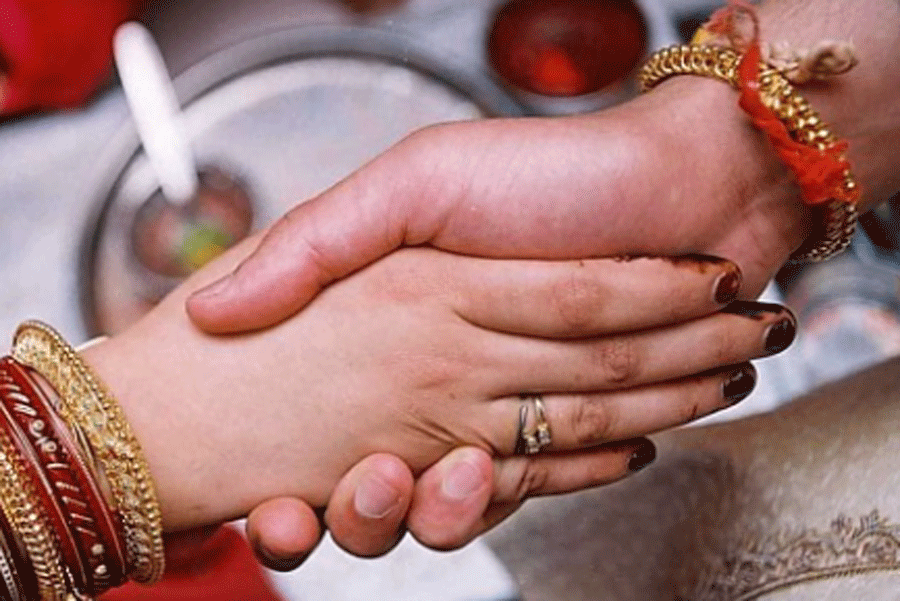A recent Muslim-Buddhist marriage that led the BJP to fire a senior Muslim leader is threatening the fledgling unity between the two communities in Ladakh, prompting fresh calls for harmony.
Ladakh’s Buddhists and Muslims, once bitter rivals, have been campaigning together seeking special status for the region -- which was carved out of Jammu and Kashmir as a Union Territory in 2019 --- fearing an onslaught by outsiders.
But fresh tensions have surfaced after the son of Leh politician Sheikh Nazir Ahmad, who was the BJP’s senior-most Muslim leader in the region, married a Buddhist woman. The party quickly expelled Ahmad, alleging the marriage had jeopardised communal harmony in Ladakh.
The situation has now worsened with Leh town observing a shutdown in response to a call by the Ladakh Buddhist Association (LBA), the region’s main Buddhist organisation. The LBA also organised a massive rally, carrying posters that described the marriage as an instance of “love jihad”.
“Love jihad” refers to an alleged – and unsubstantiated -- Muslim conspiracy under which young Muslim men romance and marry non-Muslim women to convert and radicalise them.
Ladakh’s Muslim organisations, including the Anjuman Moin-ul-Islam, which opposes the marriage, have objected to the use of “divisive” language and denied allegations that the Muslim community was complicit in the marriage.
LBA leaders have claimed that the woman was converted through allurement, although she has released a video claiming she married the Muslim man of her own will.
She has asserted that she had performed the nikah 12 years ago. The issue came to the boil recently after the couple registered for a court marriage.
The LBA held a protest on Wednesday against what it said was the induced conversion of a Buddhist woman. Led by LBA president Thupstan Chhewang, a massive rally was held from Chowkhang Vihara to the Leh Polo Ground. The markets too were closed in protest.
The LBA has submitted a memorandum to the Ladakh lieutenant governor seeking an anti-conversion law.
According to the memorandum, an agreement was executed between the Muslims of Leh and the LBA some 30 years ago, with both communities pledging not to carry out religious conversions, particularly those of women, through “monetary allurement, misrepresentation and fraudulent tactics”.
This agreement bound the two communities to returning any “converted women” immediately to their parents in order to maintain harmony, the memorandum said.
“However, it has been seen that the vested interests with strong communal dispositions seek to violate the agreement at will,” it added.
Jamiat-e-Ulema Kargil president Shiekh Nazir Mehdi told a gathering on Friday that the marriage had taken place in 2011. He questioned the timing of the protests.
“It’s essential that we understand the motives of those who seek to divide the people of Ladakh. I sincerely appeal to the Buddhist leaders in Leh to recognise and address these divisive conspiracies,” he said.
“Today, we are uniting our voices for the future of Ladakh. Such protests only serve to ignite discord within our society. I want to clarify that while our religion did not endorse or approve of marriages between individuals of different faiths, ultimately, marriage remains a personal decision.”










